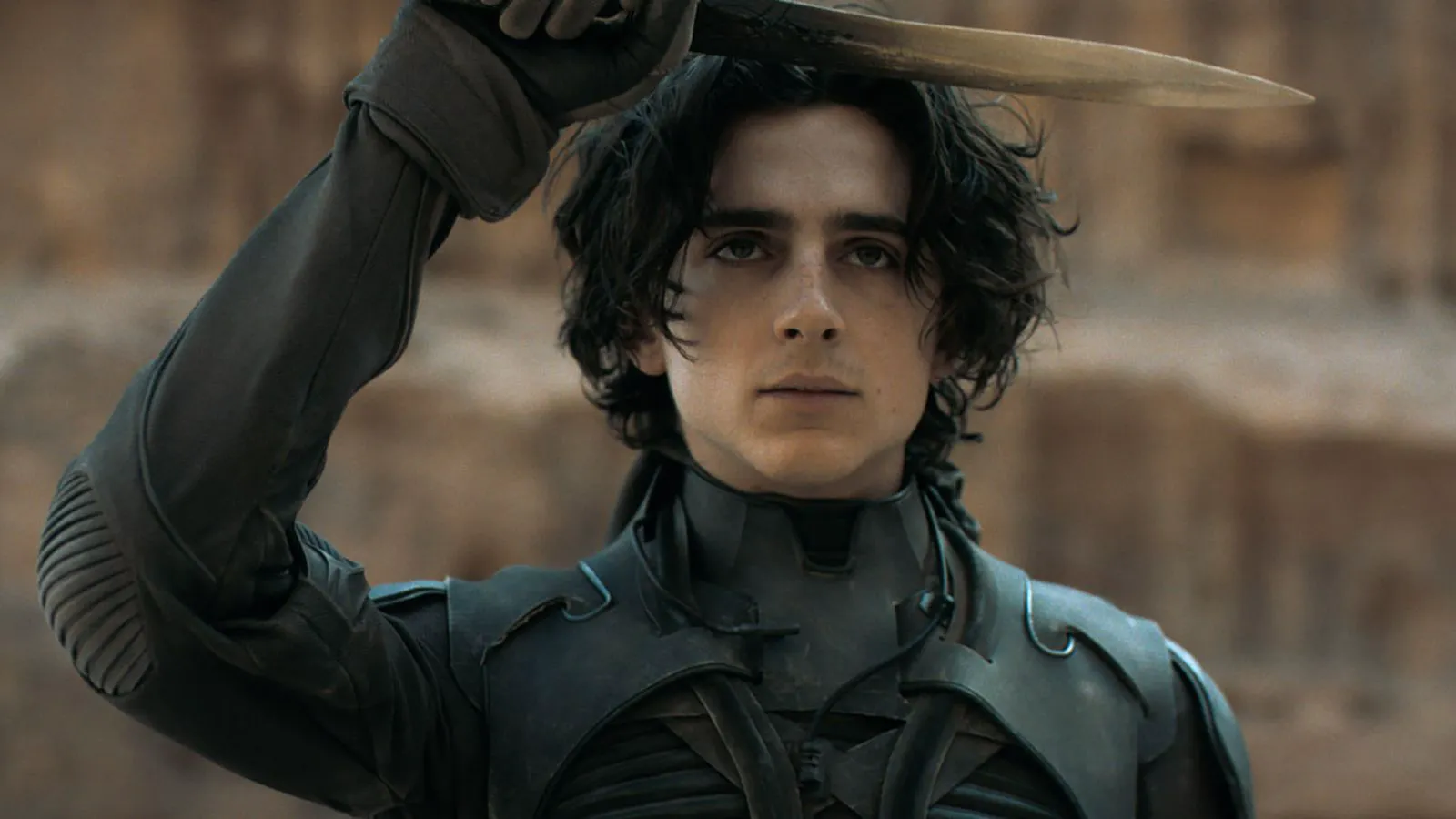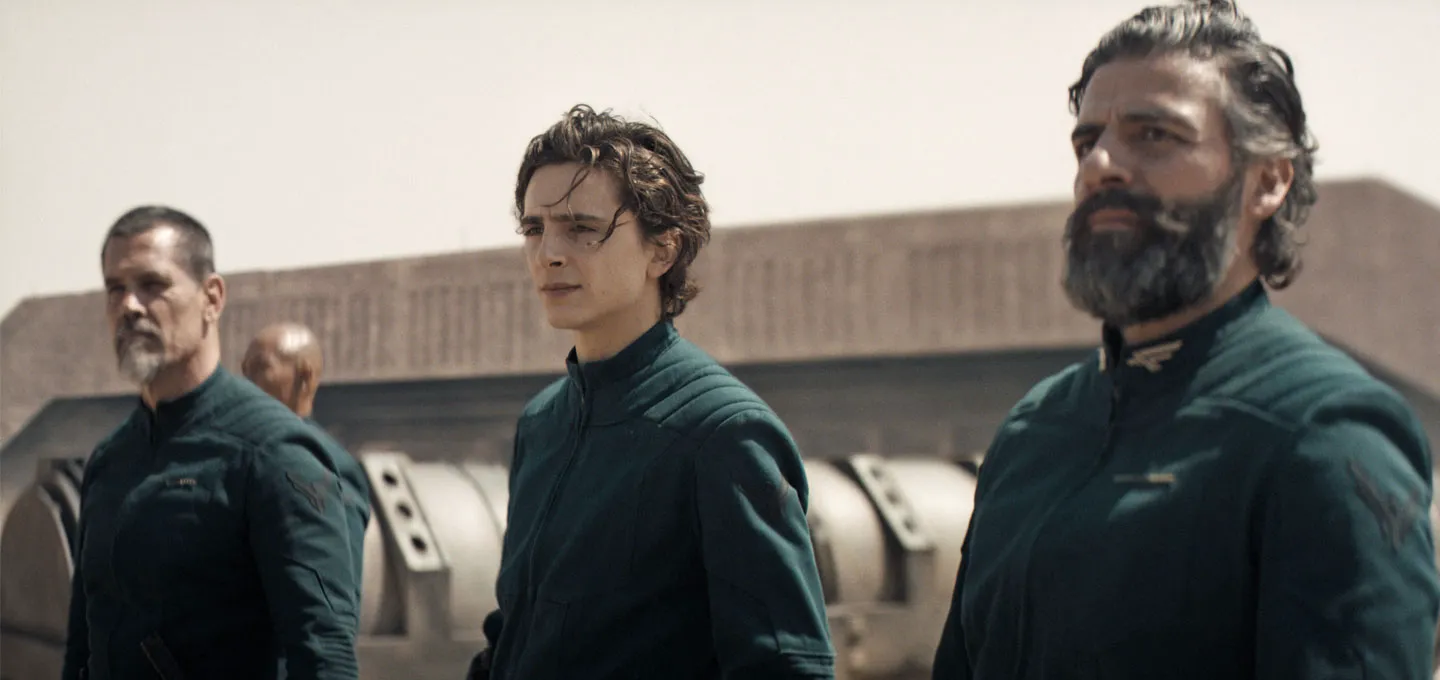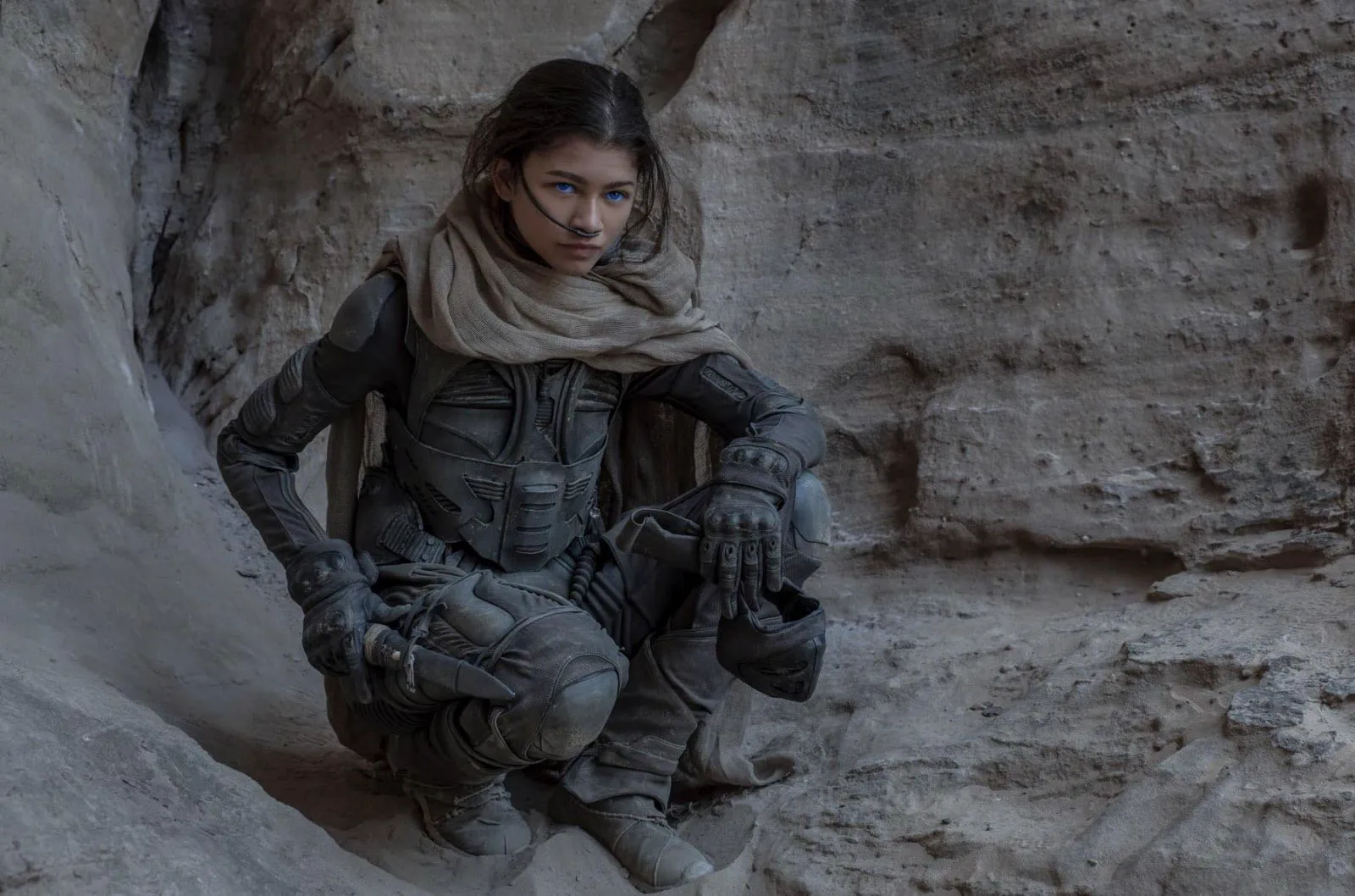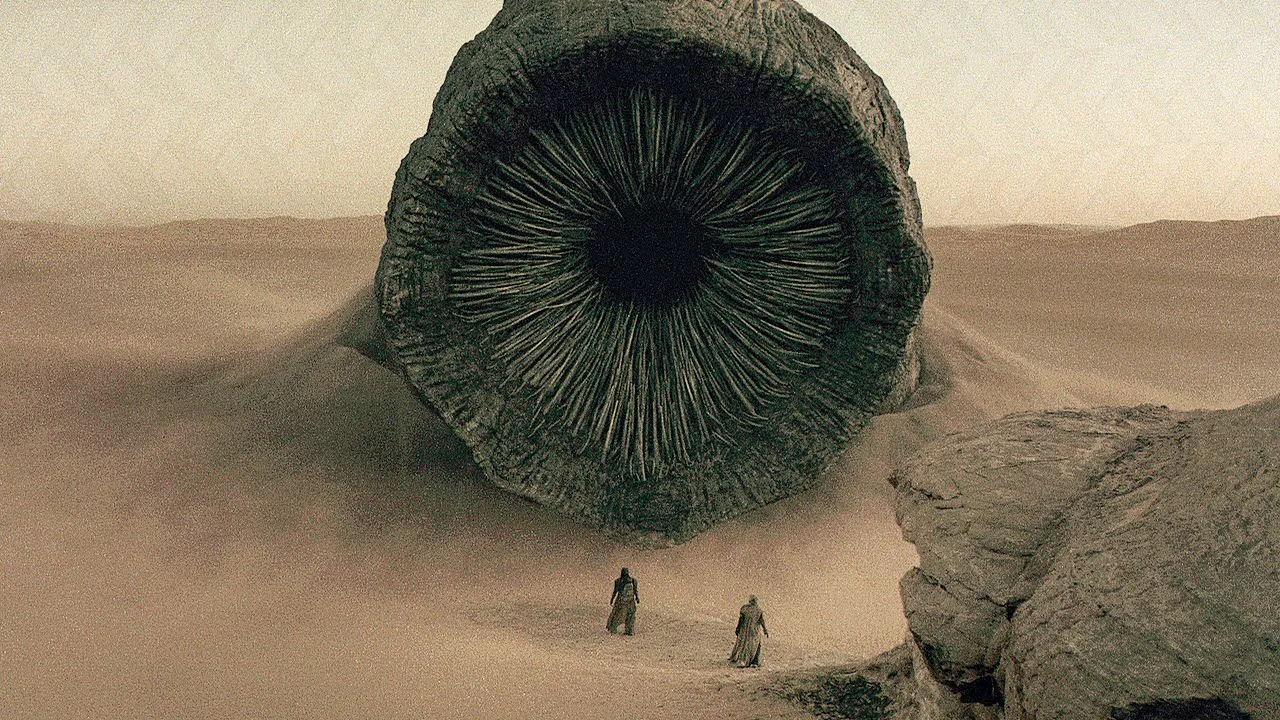The influential House Atreides, led by Duke Leto (Oscar Isaac), is sent to Arrakis to oversee the mining of spice, the most valuable substance in the universe. This planet was previously controlled by the warlike Harkonnens, who terrorized the local Fremen people and left behind only barely functioning technology. They have no intention of relinquishing Arrakis to the Atreides—the local sand dunes are far too lucrative—and are preparing for a full-scale war under the leadership of Baron Vladimir Harkonnen (Stellan Skarsgård) and Glossu “Beast” Rabban (Dave Bautista).
Meanwhile, Paul (Timothée Chalamet), the heir to House Atreides, is trying to understand himself. His mother (Rebecca Ferguson), a member of the Bene Gesserit order, is teaching her son the power of the “Voice” (the ability to command others) and convinces him that he is the Muad’Dib, the local Messiah. In his dreams, Paul sees a strange Fremen girl (Zendaya) and images from what appears to be a bleak future. When he isn’t hallucinating, he is learning to fight under the supervision of the warrior Gurney Halleck (Josh Brolin) and, like everyone else, preparing for the inevitable enemy invasion.

Timothée Chalamet as Paul Atreides in a still from “Dune”
The Challenge of Adapting Dune
“Dune” is as difficult to critique as it is to watch—not because it’s a particularly complex film (even those unfamiliar with Herbert’s novel should understand it more or less), but because in this case, the result fully corresponds to the task. Villeneuve has warned countless times that he would strictly follow the book, and that even the first novel would require two full-length films. The Canadian director of “Arrival” and “Sicario” doesn’t favor a particularly lively style—he always prefers meaningful pauses to active action. Finally, Frank Herbert’s voluminous epic is not a book from which you can make a bright, entertaining sci-fi: believe me, Hollywood has already tried.

Timothée Chalamet as Paul Atreides in a still from “Dune”
A Setup, Not a Story
“Dune” doesn’t work too well as a film, but it’s strange to scold it for this—because the problem isn’t in individual decisions, but in the fundamental concept. This is a two-and-a-half-hour setup to a story that will happen sometime later, in other films that no one has started filming yet, and if the first part fails (like Villeneuve’s previous blockbuster, “Blade Runner 2049”), will never be filmed. And “setup” in this case is not just a figure of speech. The film is really structured like a pilot for a TV series, not an epic two-hundred-million-dollar blockbuster. Although, even those are more self-contained.

Zendaya as Chani in a still from “Dune”
World-Building Without a Narrative
There’s a lot going on here: Harkonnens and Atreides, Fremen and Sardaukar, terrible rituals, political squabbles, Bene Gesserit, Muad’Dib, and finally, huge sandworms. But elements of the setting are not yet a story: Villeneuve doesn’t have one. The event that triggers the central conflict occurs closer to the third hour of the film (at the same time as the first full-fledged action scene), and the protagonist’s “quest” is outlined only at the very end. Before that, Paul Atreides aimlessly wanders around, hallucinates under the influence of spice, sees Chani in his dreams (Zendaya appears in the film very briefly, mostly looking at the camera with a slight smirk), and has engaging discussions about whether he is the chosen one or not. Some Western critics have compared “Dune” to “The Fellowship of the Ring”—but if these films were really synonymous, then the first part of “The Lord of the Rings” would have ended with the Council of Elrond in Rivendell, and Frodo would only learn under the credits that he was going to be a courier in Mordor.

Still from “Dune”
The Importance of Adaptation
Yes, “The Fellowship” is also perceived as the first act of a larger story, but at the same time, it has a coherent internal drama, and the characters have a clear goal, a literal point on the map where they need to get to at all costs. Villeneuve himself used to reward characters with a clear task: to find contact with aliens, to find a kidnapped child, to catch a drug lord in Mexico. It was thanks to the strict narrative form that his films were suited to his signature long takes: he quietly peered into standard genre plots, repeatedly finding a new sound for them. In “Dune,” the plot is blurred, hidden behind an endless series of expositional scenes, preparing us for a story that no one is going to tell.
Perhaps the problem is that Villeneuve’s style simply didn’t match the text being adapted—there’s too much information and words in it, while Denis usually tries to avoid unnecessary conversations. But there’s no particular mistake on the director’s part: judging by the history of its adaptations, “Dune” doesn’t match with anyone, in general. In Frank Herbert’s novel, complex descriptions of the political, religious, and social structure of the future work precisely because it’s a book—that is, a work that the reader can stretch out in time as much as they want, gradually getting involved in the world. A film, even a 155-minute one, is a compact text, laid out for us in specific time frames. It’s strange to seriously explain the difference between cinema and literature (it seems that everyone already guesses that these are radically different mediums), but “Dune” shows too well what happens when the structure of the novel is not adapted for the screen, but left practically in its original form. The result is an impressive construction, a rich and lively fantastic world, which spreads too far and doesn’t hold its shape—like the sand it consists of. The Atreides arrive on Arrakis and try to settle on a new planet, the Harkonnens gloomily sit in gloomy castles and prepare for a bloody massacre, the Fremen are angry that someone continues to climb on their planet. In any other film, all this would be told in about 15 minutes, or even the prehistory of the conflict would be stuffed into the opening credits. Here, the outlining of the “status quo” takes up most of the running time.
However literary purists may be against it, sometimes it’s worth throwing out a couple of dozen (or even hundreds) of pages for a good adaptation. With all this, it can’t be said that “Dune” is a definitely bad film. This is a technically perfect blockbuster that doesn’t seek to entertain the viewer at all costs, and this doesn’t happen often. As always with Villeneuve, there’s great sound design here, even more impressive than the landscapes of Arrakis and the reverently recreated details of the fantastic future (the energy armor of the heroes looks especially entertaining). There are several acting discoveries—for example, Jason Momoa as the charismatic warrior Duncan Idaho looks more interesting than his more famous colleagues (they, however, are also good). And the loose structure of the film will surely seem to someone a conceptual success, they say, the plot fuss finally doesn’t distract from metaphysics. In the end, fans will certainly never see a more faithful adaptation of “Dune” than this—it’s just not clear whether this is good or bad.